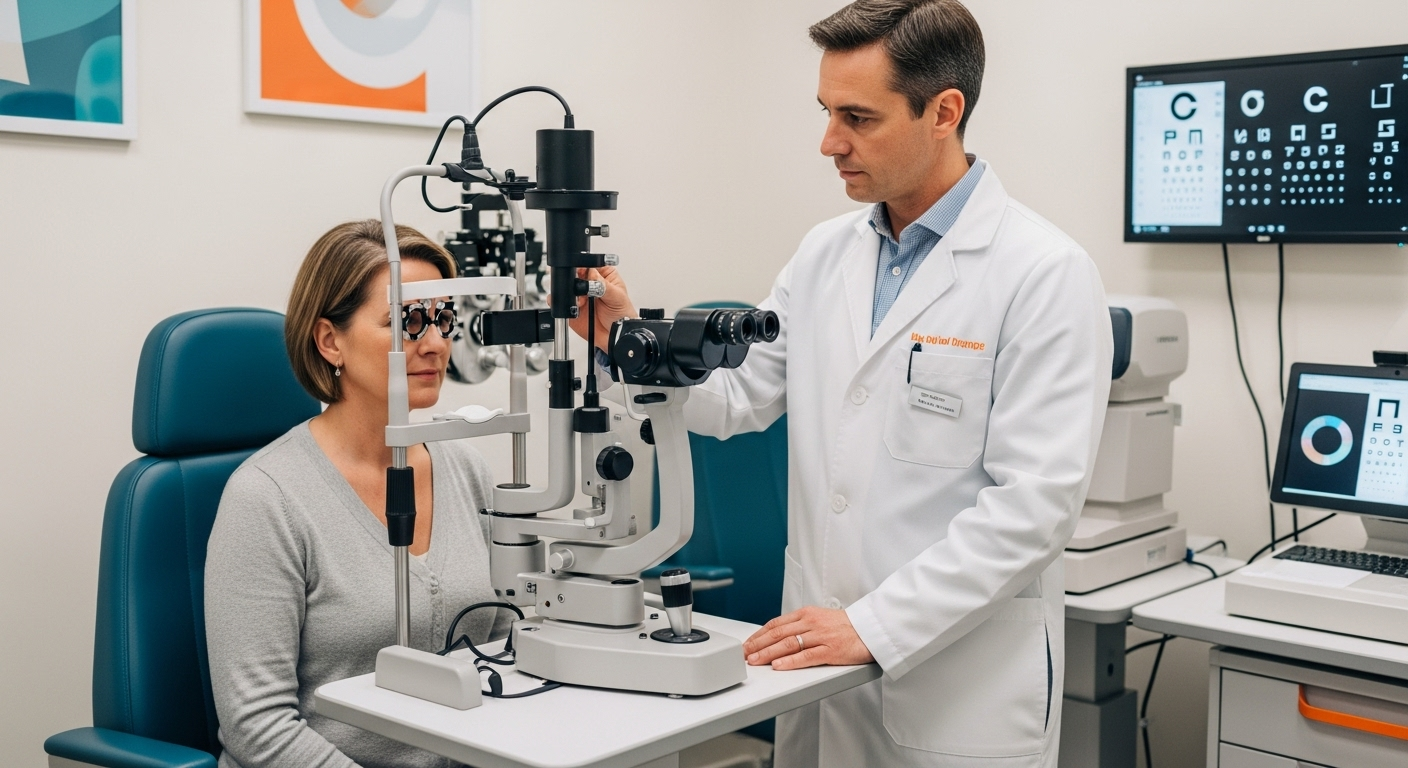Regular Eye Check-ups After 40
As we cross the age of 40, our eyes begin to undergo natural changes that can affect vision and overall eye health. This is why regular eye check-ups become an essential part of preventive healthcare after 40.

While some changes are simply a part of aging, others may develop silently and progress without obvious warning signs—until significant damage has already occurred. At Brar Eye Hospital, Bathinda, we emphasize the importance of timely screening and advanced eye care to preserve your vision well into your golden years.
Why Eye Health Declines After 40
After 40, the eyes start to lose flexibility, clarity, and tear production. Common conditions include:
Presbyopia
Difficulty focusing on nearby objects due to stiffening of the natural lens.
Cataract
Clouding of the lens, leading to blurry, dim, or yellowed vision.
Glaucoma
Silent damage to the optic nerve from high eye pressure, often symptomless in early stages.
Dry Eyes
Reduced tear film causing irritation, burning, or gritty sensations.
Macular Degeneration (AMD)
Gradual central vision loss, making it difficult to read, drive, or recognize faces.
Importance of Regular Eye Check-ups After 40
Skipping eye exams may not seem like a big deal—especially if you don't have noticeable problems—but early detection can make all the difference. Here's why regular visits matter:
Early Detection of Glaucoma
Glaucoma is often called the "silent thief of sight" because vision loss occurs gradually and without pain. Eye pressure checks, optic nerve evaluation, and visual field testing at Brar Eye Hospital can catch glaucoma before irreversible damage sets in.
Monitoring Cataract Development
Cataracts usually form slowly but can significantly reduce independence and quality of life. Detecting them early gives patients the option of advanced treatments like phacoemulsification or femto laser cataract surgery with premium lens choices.
Managing Presbyopia
Nearly everyone after 40 notices difficulty reading small print or focusing on close objects. Regular exams help in prescribing the right reading glasses, bifocals, or premium intraocular lenses tailored to lifestyle needs.
Screening for Retinal Diseases
Conditions like diabetic retinopathy and AMD can threaten vision if ignored. Retinal imaging during a routine exam helps in starting timely treatments before vision loss progresses.
Updating Vision Correction
Vision doesn't remain static. Regular eye tests ensure that your glasses or contact lens prescription is up to date, preventing unnecessary eye strain, headaches, and blurred vision.
Warning Signs That Demand an Immediate Eye Check-up
Don't wait for your next routine visit if you notice:
Blurry or double vision
Trouble seeing at night
Increased sensitivity to light
Frequent changes in glasses prescription
Eye pain or pressure
Halos around lights
If any of these occur, it's important to seek expert help at Brar Eye Hospital right away.
How Often Should You Get an Eye Check-up After 40?
People with diabetes, hypertension, or a family history of glaucoma should schedule more frequent visits.
How Brar Eye Hospital Supports Eye Care After 40
At Brar Eye Hospital, Bathinda, we provide:
Complete Eye Exams
Advanced diagnostic technology for comprehensive eye health evaluation
Glaucoma Care
Modern equipment and expert monitoring for early detection and treatment
Cataract Surgery
Cutting-edge techniques and premium lenses for clear vision restoration
Presbyopia Solutions
Customized solutions for presbyopia correction tailored to your needs
Preventive Care Plans
Long-term eye care plans designed for every patient's unique needs
Final Thoughts
Your 40s and beyond should be about enjoying life with confidence—not struggling with preventable eye problems. Regular eye check-ups are the strongest defense against vision loss from glaucoma, cataract, or retinal diseases.
With the trusted expertise of Brar Eye Hospital, Bathinda, you can safeguard your eyesight and look forward to a future that's clear, bright, and healthy.


